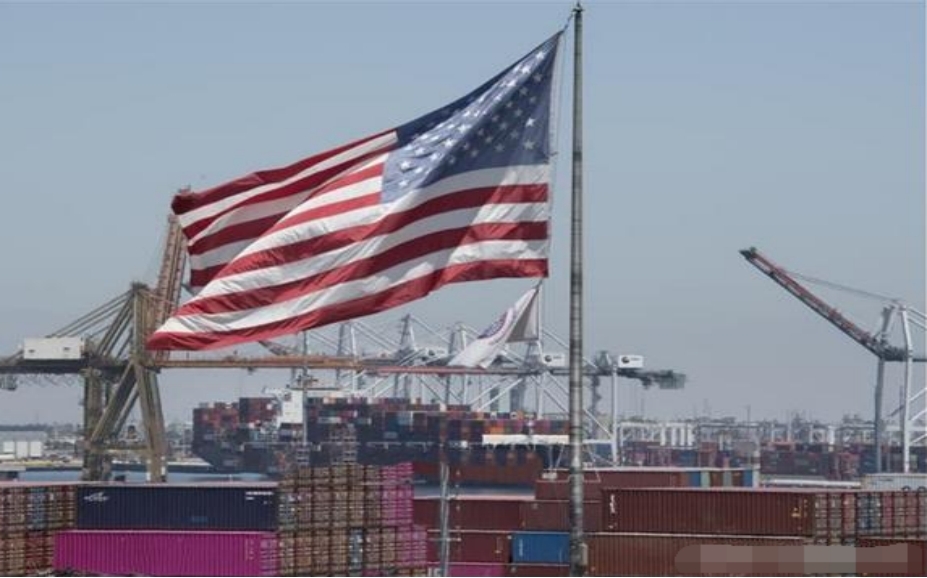
Amid the recent upheavals in the global economy, the US economy, once a beacon of stability, is now clouded as never before by President Trump's self-declared trade war. While the US economy has shown surprising resilience to pandemics, high inflation and rapid interest rate hikes over the past few years, there is widespread concern among economists in the face of the trade dispute Mr Trump has stirred up that it will be a catalyst for job losses, slower growth and higher prices.
Trump's trade war strategy is undoubtedly a major shock to the global economic order. Not only did he impose a 25 percent tariff on most goods from Mexico and Canada, two close trading partners and geographic neighbors, but he also imposed an additional 10 percent tariff on Chinese imports. The move quickly triggered retaliatory measures, with Canada and China already announcing corresponding retaliatory tariffs on US imports, while Mexico is expected to follow suit in the near future. This series of tariff measures not only directly raised the cost of related goods, but also disrupted the global supply chain at a deeper level and exacerbated economic uncertainty.
Diane Swonk, chief economist at KPMG, expressed deep concern. She noted that tariffs look like a price shock on the surface, but the more profound effect is that it could start to kill demand. Especially when consumers face high levels of uncertainty, businesses tend to limit investment and hiring to hedge potential risks. In addition, Swonk warned that the move could also have a number of unintended consequences, such as banks may tighten credit to small businesses to avoid losses from offering expensive customs bonds.
More seriously, Swonk doesn't think a recession early next year is out of the question. Given how dependent Canada and Mexico are on the U.S. market for their exports, this recession could quickly spread throughout North America and even have a ripple effect on the global economy. Further deepening of retaliatory tariffs will undoubtedly exacerbate this trend. Swonk's analysis shows that if Trump follows through on all his threats, the effective tariff rate on US imports could soar to an unprecedented high by early 2026, which would plunge the US economy into a quagmire of stagflation - a toxic combination of weak growth, high unemployment, and persistent inflation similar to that of the 1970s.
Although the U.S. economic order is markedly different now than it was in the 1930s or 1970s, Trump's sweeping actions and the ensuing uncertainty have unsettled markets as never before. Markets had hoped that Trump was simply bluffing on tariffs to gain leverage in negotiations with trading partners. However, after Trump dashed expectations of a last-minute tariff suspension on Monday, the S&P 500 fell sharply and has yet to fully recover. The performance certainly added to investors' concerns about the economic outlook.
In addition, recent statements by US retail giants such as Target, Walmart and Best Buy have further confirmed the negative impact of the trade war on the US economy. These companies have warned that they will have to raise prices and possibly reduce investment and hiring because of the higher costs caused by tariffs. This is even worse for small businesses, which are already facing a high level of uncertainty. They lack a large company like Target to share the burden of rising costs and are more likely to downsize to cope.
From a broader perspective, Trump's trade war tactics have not only impacted commodity markets and retail, but also had a profound impact on the overall economic outlook. Jack Klintz, chief economist at the National Retail Federation, noted that small businesses will face tougher choices, while the business sector often chooses to put investment and hiring on hold amid uncertainty. This will further depress the economy's growth potential and exacerbate pressure on the job market.
At the same time, the Fed faces unprecedented challenges. Before Trump started his trade war, the US central bank had successfully balanced the relationship between growth and inflation. However, with the escalating trade war, this balance is under serious threat. The Fed must now weigh the risks of higher inflation against the likely hit to growth and the damaging impact of any subsequent rise in unemployment. This is an extremely complex and tricky decision-making process.
St. Louis Fed President Alberto Musallam told the National Association for Business Economics conference that, contrary to the prevailing view until recently that central banks were close to fixing inflation without paying a price for slower growth, there are also less favorable but reasonable scenarios that must now be considered. Under these scenarios, inflation could stagnate above 2 percent or continue to rise, while the labor market weakens. That leaves the Fed with a dilemma: Should it try to curb inflation by risking a recession, or should it tolerate a rise in inflation to preserve growth and job stability?
To sum up, the trade war launched by Trump has undoubtedly brought unprecedented challenges to the US economy. From the turmoil in the commodity market and retail sector to the uncertain outlook for the broader economy to the tough choices facing the Federal Reserve, the chain reaction illustrates the destructive and unsustainable nature of the trade war. Against this backdrop, it is not surprising that dark clouds are gathering over the US economy.
However, it is worth noting that while Trump's trade war strategy has brought a huge shock to the US economy in the short term, in the long run, it may also prompt the US government and businesses to more deeply recognize the importance of globalization and free trade. Only by strengthening international cooperation and promoting trade liberalization and facilitation can we truly achieve sustainable economic development and prosperity. Therefore, when facing the challenge of Trump's trade war, we should remain calm and rational, and actively seek solutions and ways out. Only in this way can we jointly address the challenges and uncertainties facing the global economy.

报告显示,中国电力投资加速增长,预计2024年电网基建投资将超过5300亿元。
近日,市场迎来了一则引人注目的消息:工业巨头3M公司(MMM.N)在本周五公布了其季度业绩报告,随后股价飙升至近两年来的
最近,外媒给OpenAI算了笔账,今年可能要血亏50亿美元。
近日,巴黎奥运会和世界铁人三项协会联合发布了一项重大决定,宣布因塞纳河水质污染问题,原定于近期进行的奥运会铁人三项首次下
当地时间7月18日,法国巴黎发生了一起令人震惊的持刀袭警事件。
近期,一则重大消息在国际舞台上引起轩然大波,马来西亚宣布加入金砖国家。
调查发现,互联网和智能手机的使用干扰了韩国近五分之一学生的生活。